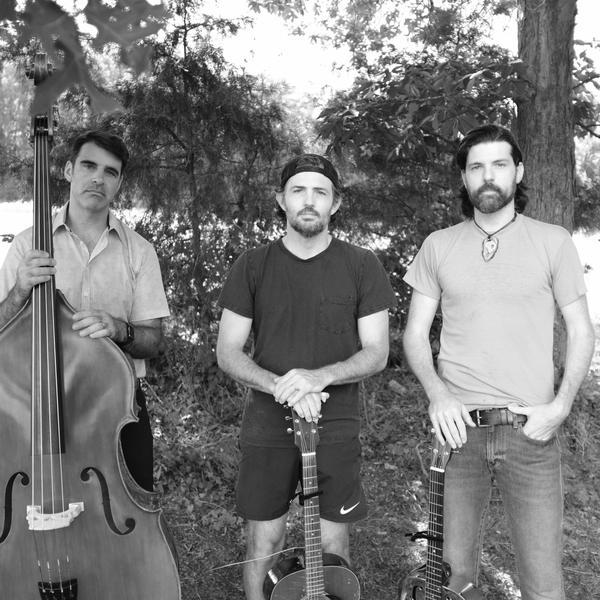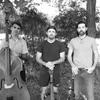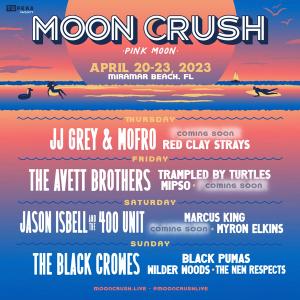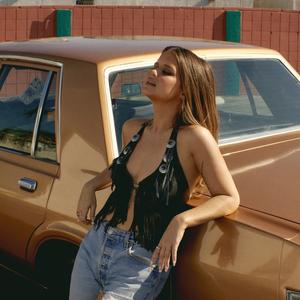




Link copied

“Roots are essential,” says Scott Avett, vocalist and instrumentalist of the Americana-rock band The Avett Brothers, “first off, they grow food and trees - they are the foundation of everything”. Avett is sitting in his home studio in rural North Carolina and, for the past hour, has been reflecting on the band’s last year, their latest album and the lasting impact their music has had on an avid fan-base – alongside the Americana and roots music scene in general.
“Of everything,” he repeats once again, before swiftly adding “But it’s important though to never let them strangle us” with a wry smile. There’s a shine that flickers in his eye as he says it that goes beyond any Zoom call or thousand-mile distance.
It’s been a decade since Scott and his brother Seth released the second instalment of The Gleam series. But when the pair announced The Third Gleam in July this past year, it felt vital, significant and necessary. While often characterized as a “return” to their stripped-down roots, The Third Gleam feels more like a glimpse of Scott and Seth in their most natural and comfortable states of artistic exchange. It’s a rare pulling back of the curtain that’s sometimes lost with full production, albeit often required, of a full-length rock album.
While family and faith have long been rooted themes within the Avett Brothers catalog, The Third Gleam is a reminder that they are still more close as siblings, than they are a tight-knit band. At its best, the eight-song collection is a personal and contemplative conversation between two brothers trying to understand the world, and themselves, a little better - one song at a time.

After speaking with a lot of artists and songwriters this past year, I quickly realized, especially in those early months, they haven’t necessarily found this time conducive to both their song writing and creative process in general. A lot have spoken about digging in and finding other outlets for their creativity. With you being a painter long before this, how have those two outlets played off one another and has painting made it easier to write, or vice versa?
I think there’s no end to ideas - they sometimes come in song form, or they’re visual, It could be a script, or any form of writing - poetry, a short story, etcetera. They even come in what some would call domestic building - sometimes an idea is just how I’m going to clean the concrete patio. What system am I going to use? At any moment, I may be driven - I know it sounds dramatic - but I may be called to do so. It’s not necessarily that it has to be done or if I don’t do it, the maintenance will get away from me. It’s kind of a calling that this is what’s right for my person or soul today.
In that regard, there’s really no end to creative work that can be done, ever. There never was - before the pandemic, during the pandemic, or after the pandemic. There’s no shortage. With that being the truth, it becomes more about my own or any of our headspaces - where we are mentally, emotionally, and of course physically. If mentally and emotionally, you’re not in a space to push paint or write words, being idle and contemplative is a lot of times more valuable. It may just be my way of being really sneaky about never getting writer’s block. I’m never going to let that grab me, because there’s always something else to do and there’s an option for motion if it is called for. The hardest part is recognizing when doing is the wrong move and when being is the right.
I’m settling into a season of life where I’m welcoming the reality that I am because I am - not I am because I do. I find that the things I do, they feel better and they may even be better for the world.
For a lot of young artists, but maybe it’s applicable to all at certain times, so much pressure can come from identity. If you identify as only a songwriter and you’re not churning out songs, then what are you? It’s so important to overcome that and just be about the process as a whole, because it’ll open doors and move things forward in the long run.
There’s certainly an unsettling feeling in that shadowy twenties and thirties where you get trapped into thinking that you are what you make. It’s so difficult not to feel that way when you look at what you perceive as legends and being legendary. Even though Bob Dylan crafted timeless and eternally spanning songs, Bob Dylan is Bob Dylan not because of what he makes, but because whatever spirit he is - if he never made any of those songs, would Zimmerman still be Zimmerman? He would be. I’m sure he’d have a ton to say about that. I’m settling into a season of life where I’m welcoming the reality that I am because I am - not I am because I do. I find that the things I do, they feel better and they may even be better for the world. As far as being an artist, one thing that I’ve zoned in on the past year has been an acceptance that I want to add to and make the world more beautiful. I’ve just accepted that - it’s something I really get off on.
It’s a trap though too. I can get to where I want to over-control a part of my life or make something that can cause or wreak havoc around me. I have to put that in check. I think young artists, if they accept who they are earlier, I think those are the ones we see - like Bob Dylan - who at a very young age, they understand this is who I am. It opens it up for them to live within that limitation of who they are. You think that Bob Dylan can do anything he wants, but Bob Dylan is Bob Dylan.
On The Third Gleam, there’s a specific song that really ties into all this. “I Go To My Heart” speaks about self-worth and productiveness, especially in that second verse with the lines “What do I do when my body lets me down? Who am I without dark hair and a pair of working hands?” That’s resonated with me and know it has to with others.
As we get older, we can’t escape that. I’m not quite old enough to admit that I don’t have a working body. I can still go chop wood and stack firewood. I can load hay and carry feed. I can swing a hammer. But I know those things are all temporary. There’s an endless list of the things that will be removed from our abilities. We eventually will move on and disappear from this planet. I’ve been thinking about this since I was a teenager. I’ve always been obsessed and in tune with it. That song and that aspiration to be aware and ask that question, and to look for solace and peace in that question, for me, that comes in the second half of life. You have to get over this line. I don’t even know what threshold that is. But I like to say that it’s this wide threshold from boyhood to manhood that I had to complete walking through.
New music can be so important for fans and listeners during this time - especially with so much additional stress and those dealing with isolation. Music can be therapeutic for the listener. What about for yourself as the writer?
That very much is what we’ve been talking about within that threshold. Kind of like from 40 to 44. I’d say from 36 to 42 was a time in my life where there were some noticeable mental and emotional changes for me. Writing and expressing myself is always a part of that process. I try my best to really filter that and not take advantage of things that I’ve learned or that are revealed to me. What I mean by that is if I’m meditating, I’m not mediating to write songs. I’m meditating to be contemplative and still. So if I start meditating, pray, or go to a contemplative space, if I’m doing that with a mission, it’s dead in the water. I will say that these songs were very much the results of that part of my life.
I departed as a young man and wanted everything that wasn’t where I came from. I got my fair share of it and realized it was about how I was and not who I wanted to be.
It’s human nature to have a rebellious phase. At least in the sense of wanting to get away from wherever you grew up or how you were raised. If your parents were country folks, when you’re a kid, you don’t necessarily think that’s cool. You do typically find a way of returning and appreciating those early roots. How essential do you think that was in the early stages of Avett Brothers and how do they still push forward for y’all today?
Roots are essential. Roots, they grow food and trees and they are the foundation of everything. It’s important though to never let them strangle us. We can’t let them restrict the things we don’t understand. That being said, with growing up in the country and then being able to travel, that’s afforded me to see and do a lot. It’s afforded me a gift and blessing of empathy. I can feel sadness sometimes for people, who a lot of people just feel pure anger for. For me individually, I know I have to be out in the woods. I have to be out in the country and taking care of some chickens and I have to piddle at the woodshop. Those things will be with me, whether touring is there or not. Whether recording is there or not. Those things will be a part of my life. They are a part of who I am. I don’t care if you travel your whole life, it doesn’t mean you’re not a country boy or girl. You just are what you are. I departed as a young man and wanted everything that wasn’t where I came from. I got my fair share of it and realized it was about how I was and not who I wanted to be.
The Avett Brothers latest album, The Third Gleam, is out now via Loma Vista recordings. Watch the group perform their latest single, 'I Go To My Heart', live on The Tonight Show With Jimmy Fallon below.





